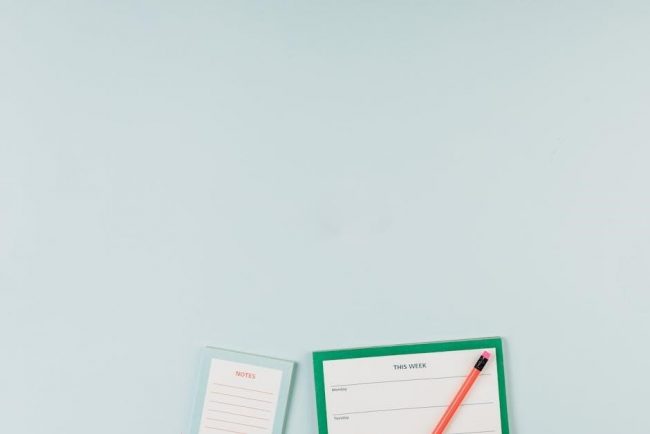Creating a structured schedule for your 8-week-old puppy is essential for their development, helping them adjust to their new environment and establishing good habits from an early age.
Why an 8-Week-Old Puppy Needs a Schedule
A schedule is crucial for an 8-week-old puppy as it provides structure and consistency, helping them feel secure and understand expectations. At this age, puppies thrive on routine, which aids in reducing anxiety and preventing bad habits. A well-planned schedule ensures they receive proper feeding times, potty breaks, and playtime, all of which are vital for their growth and development. Without a schedule, puppies may struggle with house training and behavioral issues. Establishing a daily routine early on sets the foundation for a well-adjusted and obedient adult dog. Consistency helps puppies learn faster and adapt to their new environment more smoothly.
Benefits of a Structured Routine for Puppies
A structured routine offers numerous benefits for puppies, fostering a sense of security and consistency. It helps with house training by creating predictable potty breaks, reducing accidents and speeding up the learning process. A daily schedule also promotes healthy eating habits, ensuring puppies receive the necessary nutrients at the right times. Playtime and rest periods are balanced, preventing overexertion and supporting physical and mental development. Additionally, a routine simplifies socialization, helping puppies adapt to new environments and people. Overall, a structured routine lays the groundwork for a well-behaved, confident, and happy adult dog, making the transition to family life smoother for both the puppy and the owner.
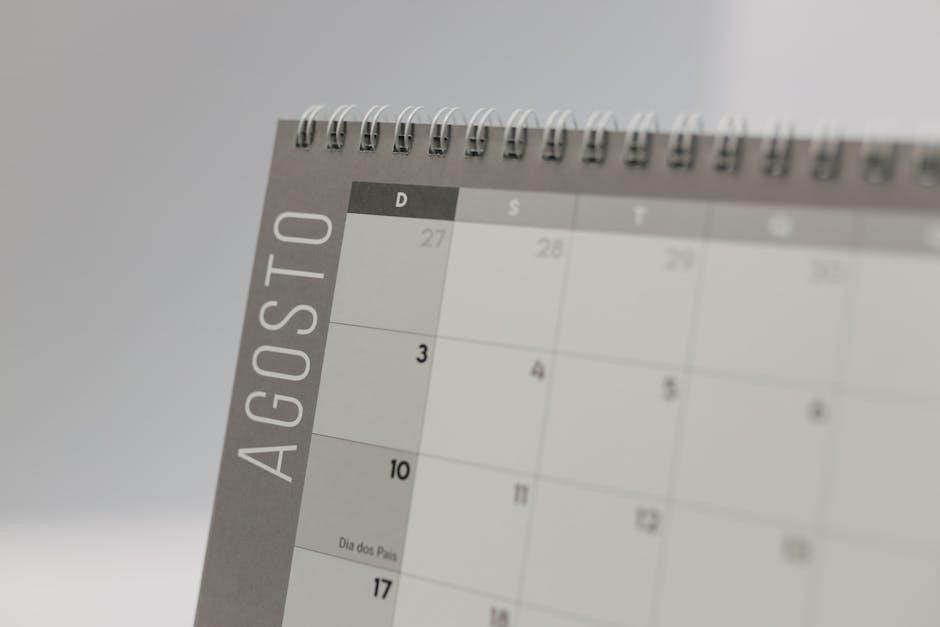
Feeding Schedule for an 8-Week-Old Puppy
An 8-week-old puppy typically needs 3-4 small meals daily, spaced evenly. Optimal feeding times are morning, noon, and evening to maintain energy and digestion consistency.
How Often Should an 8-Week-Old Puppy Eat?
An 8-week-old puppy should eat 3-4 times daily. Feeding at consistent intervals helps establish a routine, supports growth, and prevents overeating or undereating. Puppies at this age have high energy needs and small stomachs, so smaller, frequent meals are ideal. For example, feeding at 7:00 AM, 12:00 PM, 4:00 PM, and 7:00 PM ensures they receive adequate nutrition throughout the day. This schedule also aligns with potty training, as puppies typically need to go outside within 15-30 minutes after eating. Consistency in feeding times helps with digestion and reduces the risk of hunger-related stress or behavioral issues.
Best Foods for an 8-Week-Old Puppy
The best foods for an 8-week-old puppy are high-quality, nutrient-rich puppy formulas designed for their age and breed size. Look for foods with protein as the first ingredient, such as chicken, turkey, or salmon, to support growth and development. Avoid fillers like corn and by-products, as they provide little nutritional value. Moisture-rich foods, like wet kibble or canned options, can help with digestion and palatability. Consult your vet to ensure the food meets your puppy’s specific needs. Some excellent options include Royal Canin Puppy Food, Hill’s Science Diet Puppy Food, and Orijen Puppy Food. These brands are known for their balanced nutrition and suitability for young puppies.
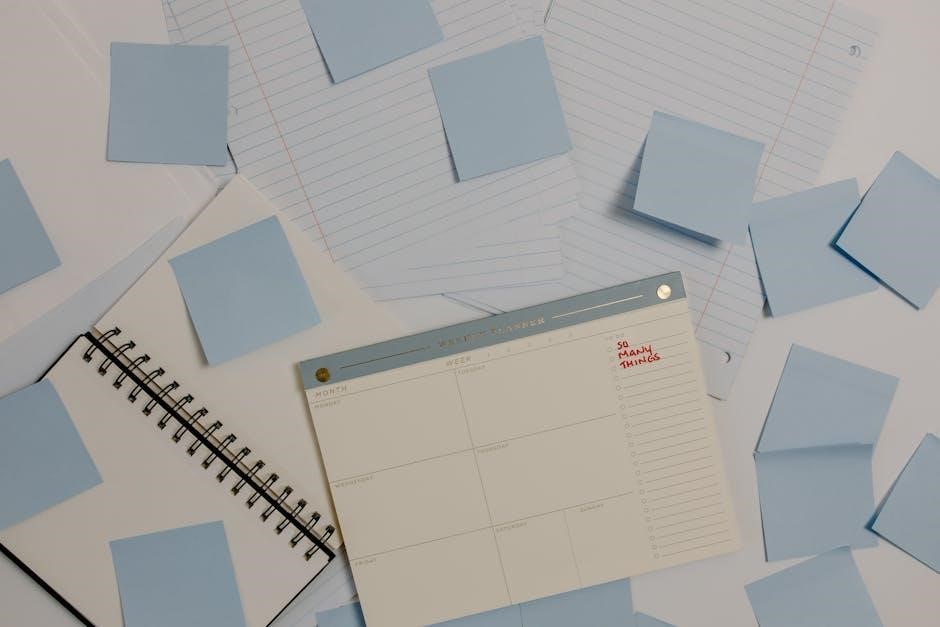
Potty Training and Bathroom Breaks
Potty training is crucial at 8 weeks. Puppies need frequent bathroom breaks, ideally every hour, and after meals or play. Crate training can help with consistency and accidents.
How Often Does an 8-Week-Old Puppy Need to Go Outside?
An 8-week-old puppy needs to go outside very frequently, typically every hour, as their small bladder can’t hold urine for long. Consistency is key to successful potty training. Take your puppy outside immediately after meals, naps, and playtime, as these activities often trigger the need to go. Crate training can help with potty breaks, but avoid leaving them in the crate for too long, as this can lead to accidents. Stick to a schedule and watch for signs like sniffing or circling, which indicate your puppy needs to go. As your puppy grows, you can gradually increase the time between bathroom breaks.
Tips for Successful Potty Training
- Consistency is key—take your puppy outside at the same times daily, such as after meals, naps, and playtime.
- Use a specific command like “go potty” to help your puppy associate the phrase with the action.
- Praise and reward your puppy with treats or praise when they go outside correctly.
- Watch for signs like sniffing or circling, which indicate your puppy needs to go.
- Keep an eye on the weather and ensure your puppy has a dry, comfortable spot to go if needed.
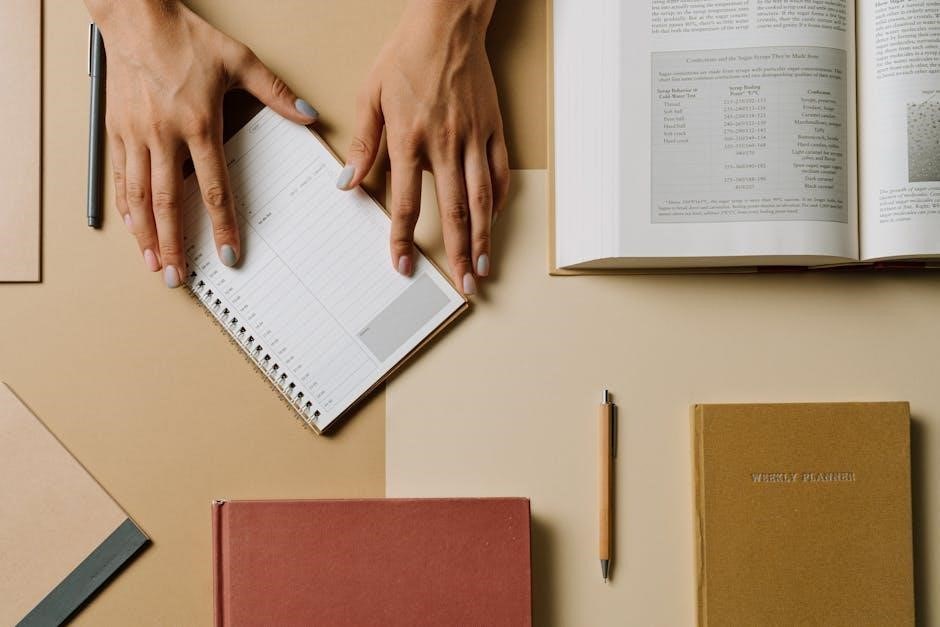
Playtime and Socialization
Playtime and socialization are crucial for an 8-week-old puppy, fostering physical growth, mental stimulation, and confidence. These activities help shape their behavior and prepare them for life.
Importance of Playtime at 8 Weeks
Playtime is vital for an 8-week-old puppy, promoting physical growth, motor skill development, and social skills. It helps puppies explore their environment, reducing anxiety and fear. Play also strengthens the bond between puppy and owner. Mental stimulation through play prevents boredom and destructive behavior. At this age, puppies need short, gentle play sessions to avoid overexertion. Activities like light walks, interactive toys, and supervised play with safe objects are ideal. Playtime also helps puppies learn boundaries and basic manners. Ensuring adequate playtime supports overall development, making it a key part of a puppy’s daily routine. It’s essential to balance play with rest for healthy growth.
How to Socialize an 8-Week-Old Puppy
Socializing an 8-week-old puppy is crucial for their emotional and behavioral development. Start by exposing them to new environments, people, and animals in a positive, controlled manner. Introduce them to various textures, sounds, and smells to broaden their experiences. Keep interactions short and fun to avoid overwhelming them. Use treats and praise to reinforce positive reactions. Introduce them to family members and friends, ensuring everyone interacts gently. Gradually expose them to other pets, starting with calm, well-behaved animals. Avoid crowded or stressful areas to prevent negative associations. Socialization at this age helps build confidence and reduces fear-based behaviors later in life. Consistency and patience are key to successful socialization.
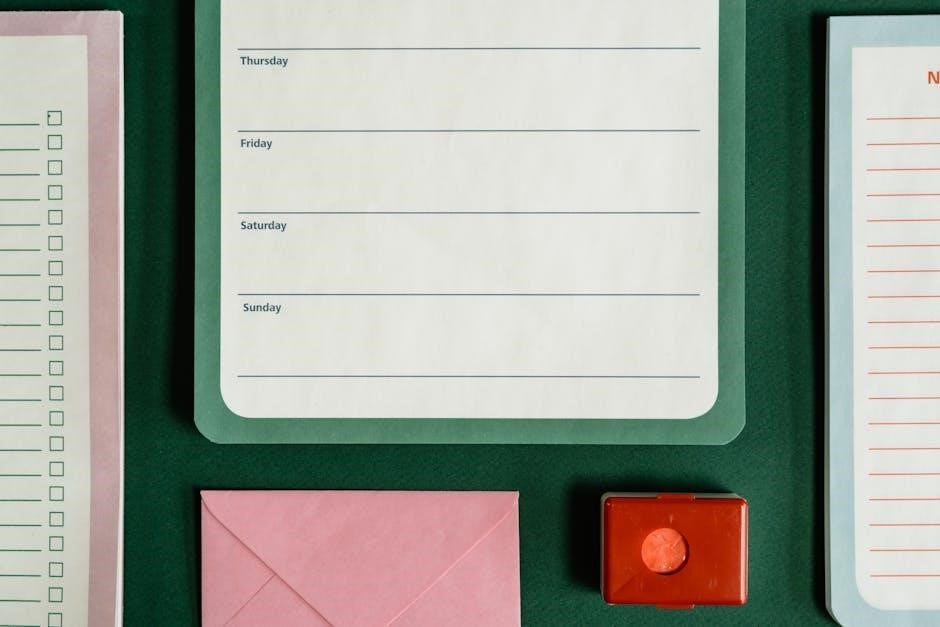
Sleep and Rest for 8-Week-Old Puppies
An 8-week-old puppy needs 18-22 hours of sleep daily. Ensure a safe, quiet space for rest, and use a crate to prevent accidents and promote consistency.
How Many Hours of Sleep Does an 8-Week-Old Puppy Need?
An 8-week-old puppy typically requires 18-22 hours of sleep daily, spread across naps and nighttime rest. Puppies at this age sleep heavily due to rapid growth and development. They usually wake up every few hours to eat or go outside. Crate training can help create a safe sleep environment and prevent accidents. Ensuring your puppy gets enough rest is crucial for their physical and mental health. A consistent sleep schedule helps regulate their internal clock and supports overall development. Avoid overstimulating your puppy before bedtime to promote better sleep quality. A well-rested puppy is happier and more receptive to training and playtime.
Creating a Safe Sleep Environment
Creating a safe sleep environment for your 8-week-old puppy is crucial for their comfort and security. A crate is an excellent tool for this purpose, as it provides a cozy, enclosed space that mimics a den. Place the crate in a quiet, draft-free area of your home, such as a bedroom or living room. Line the crate with a soft, washable bed or mattress to ensure your puppy’s comfort. Avoid making the crate too large, as your puppy may use a corner for bathroom purposes. Supervise your puppy closely during sleep to ensure their safety and well-being. Establishing a consistent bedtime routine, such as dimming the lights or playing calming music, can help your puppy settle down more easily. A secure sleep environment fosters trust and helps your puppy feel protected and relaxed.
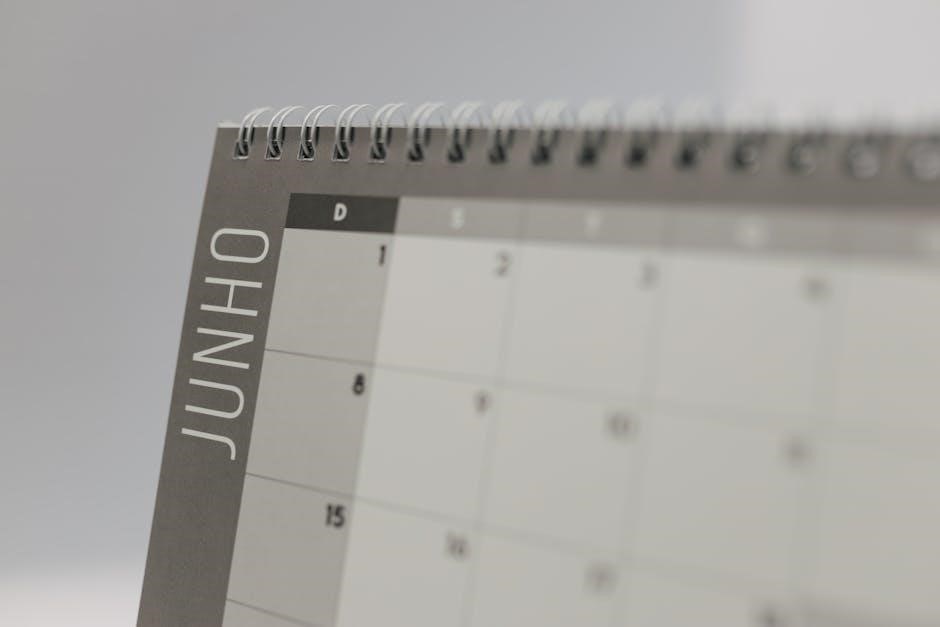
Health Checks and Vet Visits
Regular health checks and vet visits are vital for monitoring your puppy’s growth and ensuring they receive necessary vaccinations and care during their critical first weeks of life.
What to Expect at the First Vet Visit
The first vet visit for your 8-week-old puppy is a crucial step in ensuring their health and well-being. Expect a thorough physical exam to check for any signs of illness or abnormalities. The vet will monitor their weight, overall condition, and vital signs. Core vaccinations, such as distemper and parvovirus, are typically administered during this visit. Discuss parasite control, including flea, tick, and heartworm prevention. This is also an opportunity to ask questions about feeding, potty training, and behavior. The vet may provide guidance on caring for your puppy and schedule follow-up visits for additional vaccinations. This visit lays the foundation for a healthy, happy puppy.
Vaccination Schedule for Puppies
A vaccination schedule is critical for protecting your puppy from life-threatening diseases. At 8 weeks old, puppies typically receive their first core vaccines, including distemper, hepatitis, and parvovirus (DHPP). Rabies vaccination is also essential, usually administered around 12-16 weeks. Follow-up doses are given every 3-4 weeks until your puppy is 16-17 weeks old. Non-core vaccines, like Bordetella, may be recommended based on lifestyle. Consistency is key to ensuring your puppy is fully protected. Always consult your vet to determine the best vaccination plan tailored to your puppy’s needs and environment. A well-planned schedule ensures your puppy stays healthy and thrives as they grow.
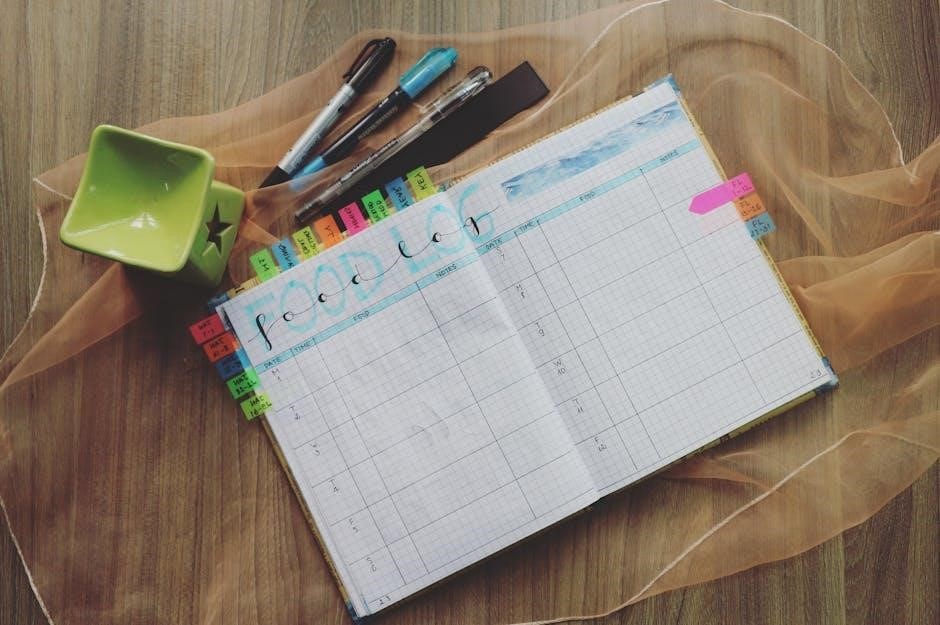
Sample 8-Week-Old Puppy Schedule PDF
A sample 8-week-old puppy schedule PDF provides a structured daily routine, including feeding times, potty breaks, play periods, and sleep schedules, helping owners maintain consistency and organization.
How to Create a Daily Routine
Creating a daily routine for your 8-week-old puppy involves establishing a consistent schedule for feeding, potty breaks, playtime, and sleep. Start by identifying your puppy’s natural patterns and needs. Divide the day into manageable intervals, such as every 1-2 hours for potty breaks and feeding. Incorporate playtime and training sessions to stimulate physical and mental development. Ensure rest periods are included to prevent overexertion. Use a planner or app to track and maintain consistency. Flexibility is key, as puppies grow quickly and their needs may change. A well-structured routine helps with housebreaking, behavior, and overall adjustment to their new home.
- Plan feeding times (3-4 meals daily).
- Schedule frequent potty breaks.
- Allocate time for play and socialization.
- Ensure adequate sleep (18-20 hours daily).
A consistent routine is the key to raising a happy, healthy puppy.
Downloadable Puppy Schedule Template
A downloadable puppy schedule template is a valuable tool for organizing your 8-week-old puppy’s daily routine. These templates are designed to help you track feeding times, potty breaks, play sessions, and sleep schedules. Many templates are customizable, allowing you to tailor them to your puppy’s specific needs and your lifestyle. They often include time blocks for meals, exercise, and training, as well as space for notes on progress or concerns. Using a template ensures consistency and helps you stay on track with your puppy’s care. You can find these templates online or create your own using a spreadsheet or planner. A well-organized schedule is key to raising a happy, healthy puppy.
- Includes time blocks for meals and potty breaks.
- Provides space for notes and progress tracking.
- Can be customized to fit your lifestyle.
- Helps maintain consistency and organization.
Downloadable templates simplify puppy care and ensure your pup thrives.
